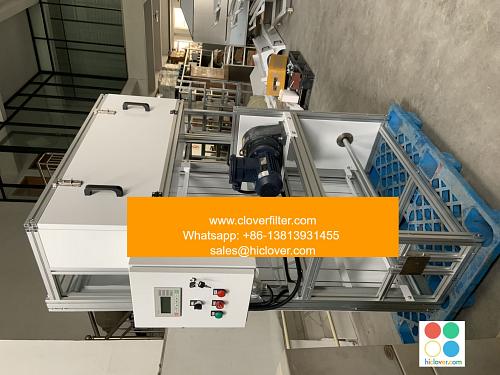Air Filters in Healthcare: A Guide to Clean Air in Hospitals and Clinics

The importance of clean air in healthcare settings cannot be overstated. Hospital air filtration systems and clinical air purifiers play a crucial role in maintaining a healthy indoor air quality (IAQ) and preventing the spread of airborne diseases. In this article, we will delve into the world of air filtration in healthcare, exploring the various types of air filters, their applications, and the benefits they provide in hospitals and clinics.
Types of Air Filters Used in Healthcare
There are several types of air filters used in healthcare settings, each with its own unique characteristics and benefits. Some of the most common types include:
– HEPA filters (High Efficiency Particulate Air filters): These filters are capable of capturing 99.97% of particles as small as 0.3 microns, making them ideal for use in operating rooms, intensive care units, and other areas where sterile air quality is critical.
– Activated carbon filters: These filters are designed to capture gases, odors, and volatile organic compounds (VOCs), making them useful in areas where chemical fumes or odors are present.
– UV air purifiers: These filters use ultraviolet light to kill bacteria, viruses, and other microorganisms, providing an additional layer of protection against airborne diseases.
Applications of Air Filters in Healthcare
Air filters have a wide range of applications in healthcare settings, including:
– Operating rooms: HEPA filters and other types of air purifiers are used to maintain a sterile environment and prevent the spread of airborne diseases.
– Intensive care units: Air filtration systems are used to provide a healthy indoor air quality for critically ill patients who are more susceptible to airborne diseases.
– Isolation rooms: HEPA filters and other types of air purifiers are used to prevent the spread of airborne diseases in isolation rooms.
– Clinical laboratories: Air filtration systems are used to maintain a clean environment and prevent contamination of samples.
Benefits of Air Filters in Healthcare
The benefits of using air filters in healthcare settings are numerous, including:
– Prevention of airborne diseases: Air filtration systems can help prevent the spread of airborne diseases such as tuberculosis, influenza, and COVID-19.
– Improved indoor air quality: Air filters can help remove particulate matter, gases, and odors from the air, creating a healthier environment for patients and staff.
– Reduced risk of hospital-acquired infections: Air filtration systems can help reduce the risk of hospital-acquired infections (HAIs) by removing airborne pathogens from the air.
Best Practices for Maintaining Air Filters in Healthcare
To ensure the effectiveness of air filters in healthcare settings, it is essential to follow best practices for maintenance, including:
– Regular filter changes: Air filters should be changed regularly to ensure optimal performance and prevent the buildup of particulate matter and other contaminants.
– Proper installation: Air filters should be installed correctly to ensure that they are functioning properly and providing the desired level of air purification.
– Monitoring and testing: The performance of air filters should be monitored and tested regularly to ensure that they are providing the desired level of air purification. Prompt

